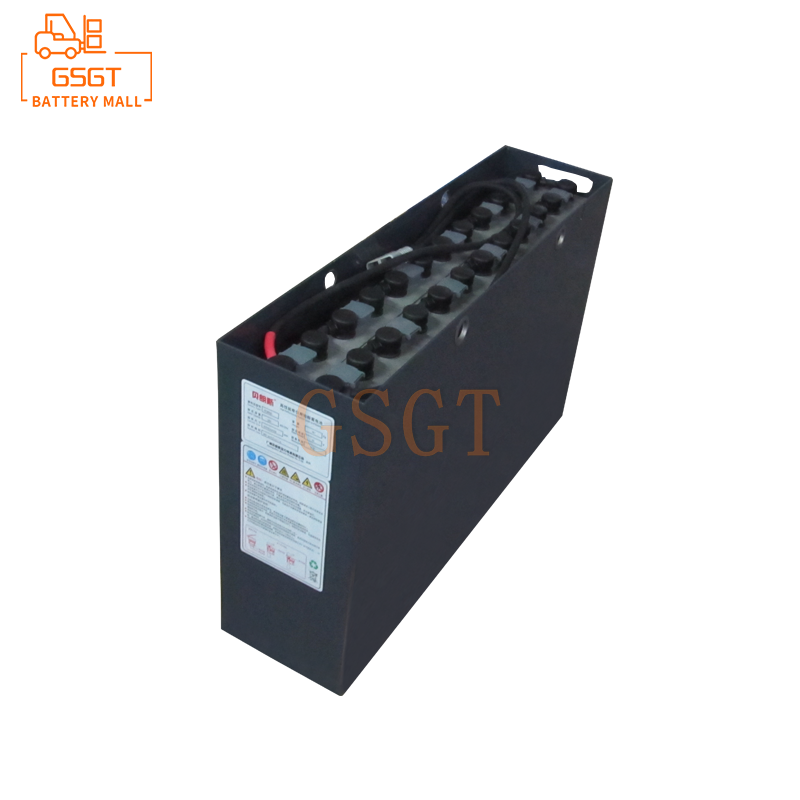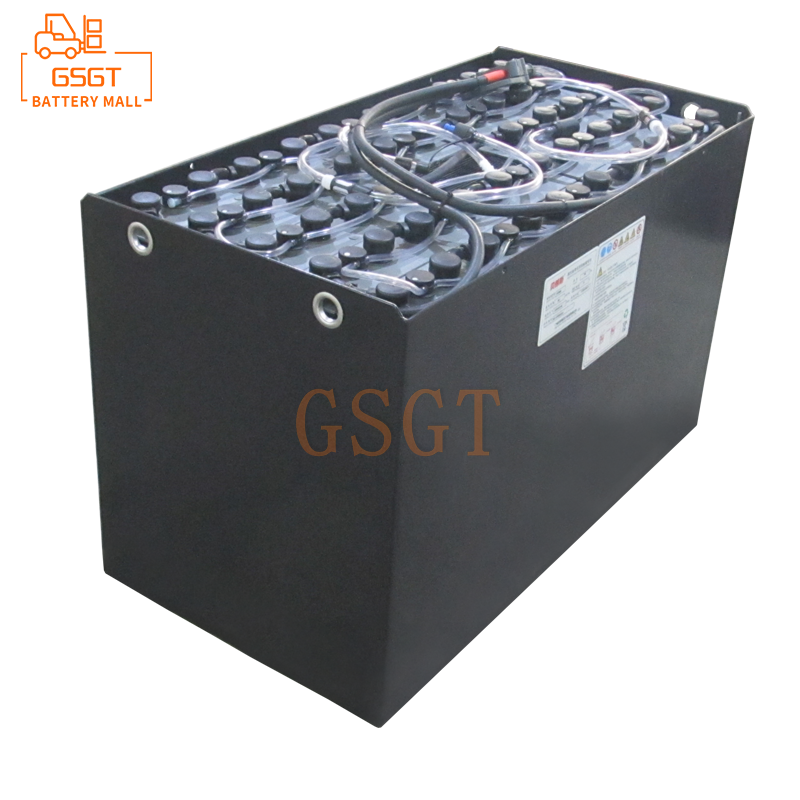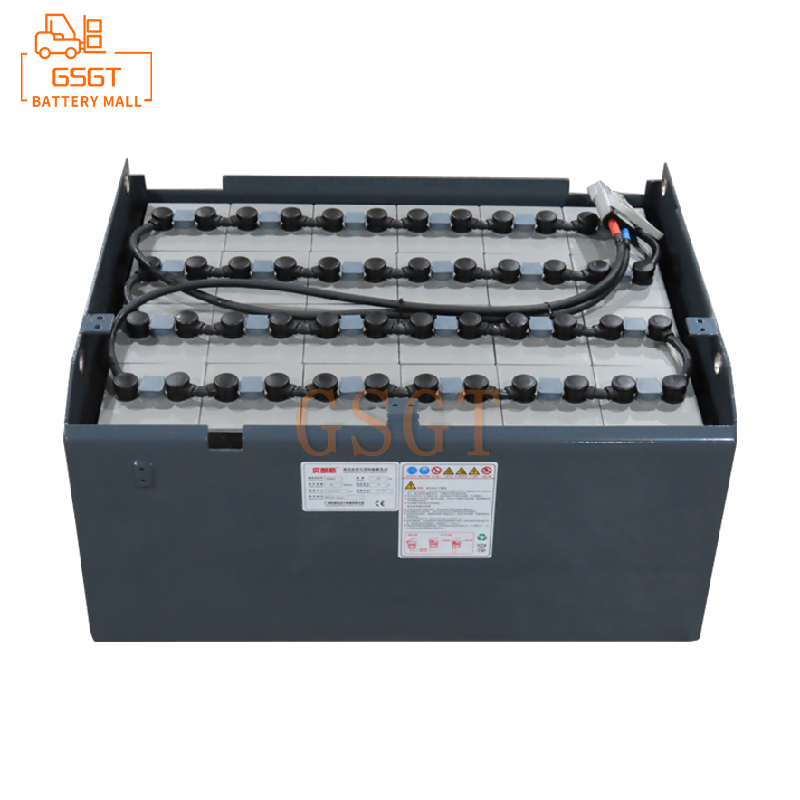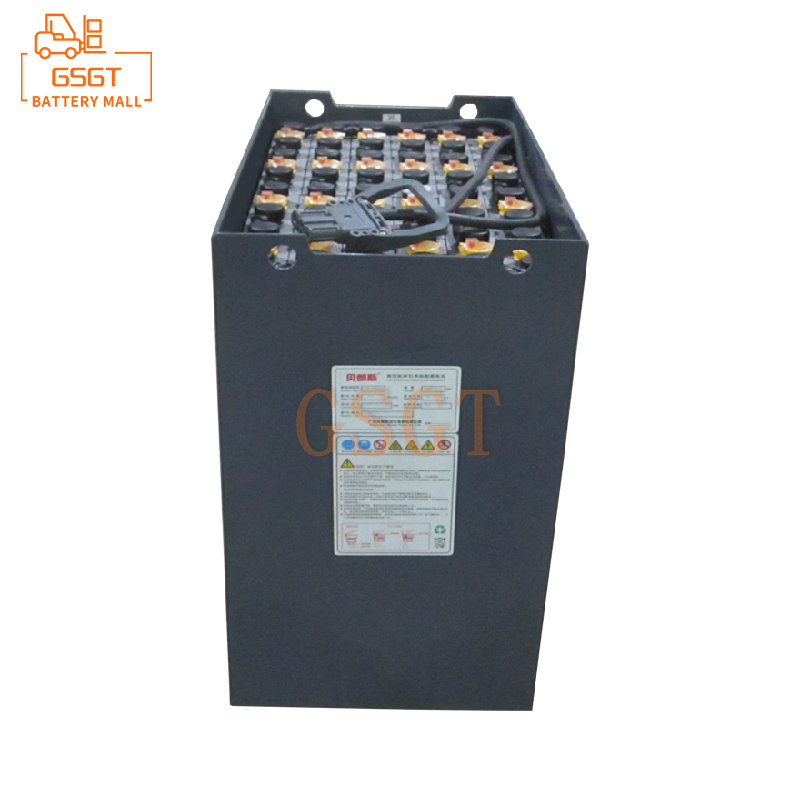Time:2025-07-11 11:01:50
Browse:635
In the daily operation of forklifts, lead-acid batteries are the core components that provide power, and their performance directly affects the working efficiency and service life of forklifts. However, overcharging and overdischarging are common problems during the use of storage batteries. If not taken seriously, they will not only shorten the battery's lifespan but also may cause safety hazards. The following is a detailed analysis of the hazards of overcharging and overdischarging lead-acid batteries in forklifts, and the corresponding avoidance methods are introduced.
The hazards of overcharging lead-acid batteries in forklifts
Overcharging refers to the situation where, during the charging process of a battery, the charging time is too long or the charging voltage is too high, resulting in overly intense chemical reactions inside the battery. This situation will bring about multiple harms.
First of all, overcharging will accelerate the corrosion of the battery plates. Under overcharging conditions, a large amount of oxygen and hydrogen are produced inside the battery. These gases constantly erode the surface of the plates, causing the active substances on the plates to gradually fall off, thereby reducing the battery's capacity. Long-term overcharging will cause increasingly severe corrosion of the plates, which may eventually lead to the scrapping of the battery.
Secondly, overcharging can cause a large amount of electrolyte in the battery to evaporate. Electrolyte is an important medium for the normal operation of storage batteries, and its concentration and liquid level have a significant impact on the performance of storage batteries. When overcharged, the internal temperature of the battery rises, causing a large amount of electrolyte to evaporate and resulting in a drop in the liquid level. If the electrolyte is not replenished in time, the plates will be exposed to the air, further intensifying their oxidation and corrosion. At the same time, an increase in the concentration of the electrolyte will also affect the charging and discharging performance of the battery.
In addition, overcharging also poses safety risks. Hydrogen produced inside a battery is a flammable and explosive gas. When the hydrogen concentration reaches a certain level, it may explode upon encountering an open flame. In some poorly sealed charging environments, this risk is even higher and may pose a threat to the personal safety of the operators.
The hazards of over-discharging lead-acid batteries in forklifts
Over-discharge refers to the situation where the amount of discharge from a battery exceeds its rated capacity during the discharging process, resulting in a battery voltage that is too low. Over-discharging can also cause serious damage to the battery.
On the one hand, over-discharging can cause sulfation of the battery plates. When a storage battery is over-discharged, a layer of hard lead sulfate crystals will form on the plates. These crystals are difficult to decompose during subsequent charging processes and will gradually cover the surface of the plates, reducing their activity and significantly lowering the battery's capacity. Moreover, once sulfation occurs, it is irreversible and will gradually intensify, eventually leading to the battery being unable to be used normally.
On the other hand, over-discharging can cause damage to the plate structure of the battery. During the over-discharge process, the chemical reactions inside the battery become unbalanced, which can cause the plates to bend, deform, and in severe cases, even lead to plate breakage. This not only affects the performance of the battery but may also cause internal short circuits in the battery, leading to safety accidents.
Methods to avoid overcharging and overdischarging of lead-acid batteries in forklifts
After understanding the hazards of overcharging and overdischarging, it is crucial to take effective measures to avoid them.
Choose and use chargers reasonably
It is necessary to choose a charger that matches the model of the battery. Different models of batteries have different requirements for charging voltage and current. Using an incompatible charger can easily lead to overcharging. During the charging process, strictly follow the instructions of the charger to operate and avoid prolonged charging. When the charger indicates that the charging is complete, the power supply should be cut off in time to prevent overcharging.
Standardize the discharge operation of the battery
When using a forklift, excessive discharge should be avoided. The working hours can be reasonably arranged based on the working conditions of the forklift and the capacity of the battery. When the forklift shows phenomena such as reduced power and slowed speed, it should be stopped from use in time and charged to avoid over-discharging. At the same time, the voltage of the battery should be checked regularly. When the voltage drops below the rated value, discharging should be stopped immediately and charging resumed.
Regularly maintain and inspect the battery
Regularly check the electrolyte level and concentration of the battery. When the level is lower than the standard, distilled water should be replenished in time (note that tap water or electrolyte should not be replenished) to keep the electrolyte concentration within an appropriate range. Regularly inspect the condition of the battery plates to see if there is any corrosion, sulfation or other phenomena. Deal with any problems found in a timely manner. In addition, it is necessary to check whether the connection lines of the battery are loose or aged, and ensure that the circuit connection is good to avoid abnormal charging or discharging due to poor contact.
Strengthen the training and management of operators
The operating habits of the operators directly affect the service life of the battery. It is necessary to enhance the training of operators, enabling them to understand the performance of batteries and the precautions for their use, and master the correct charging and discharging operation methods. At the same time, establish and improve the management system for the use of storage batteries, clarify the responsibilities of operators, regularly inspect and record the usage of storage batteries, and promptly identify and solve problems.
Frequently Asked Questions and Answers
Question: If the battery is overcharged once by accident, will it cause serious damage to the battery?
Answer: Occasionally, a short period of overcharging may not cause too much damage to the battery, but it can still have a certain impact on the plates and electrolyte. However, it is necessary to inspect the battery in a timely manner to check if the electrolyte level is normal and if there are any abnormalities in the plates. If problems are found, they should be dealt with in a timely manner. However, if it is overcharged for a long time, even just once, it may cause significant damage to the battery. Therefore, overcharging should still be avoided as much as possible during use.
Question: Can a battery be repaired after sulfation occurs?
Answer: When a battery shows a slight sulfation phenomenon, it can be alleviated through some professional repair methods, such as using pulse charging, which may decompose some sulfation crystals. However, if the sulfidation is severe and the surface of the plates is already covered with a large amount of sulfidation crystals, it is generally difficult to repair in such cases, and the performance of the battery will be irreversibly affected. It is recommended to replace the battery with a new one.
Question: How to determine if a battery is in an over-discharged state?
Answer: It can be determined by measuring the voltage of the battery. When the voltage of a battery is about 10% lower than its rated voltage, it may be in an over-discharge state. In addition, when a forklift experiences a significant decrease in power or difficulty in starting during operation, it may also be caused by over-discharging the battery. It should be stopped from use immediately and charged.
In conclusion, overcharging and overdischarging of lead-acid batteries in forklifts can cause many hazards. By taking reasonable measures to avoid them and strengthening the use and maintenance of the batteries, not only can the service life of the batteries be prolonged and the usage cost reduced, but also the safe and stable operation of forklifts can be ensured.

$1060

$3050

$2610

$2450

MESSAGE
Professional And Efficient
Security
Affordable Price
Professional Services